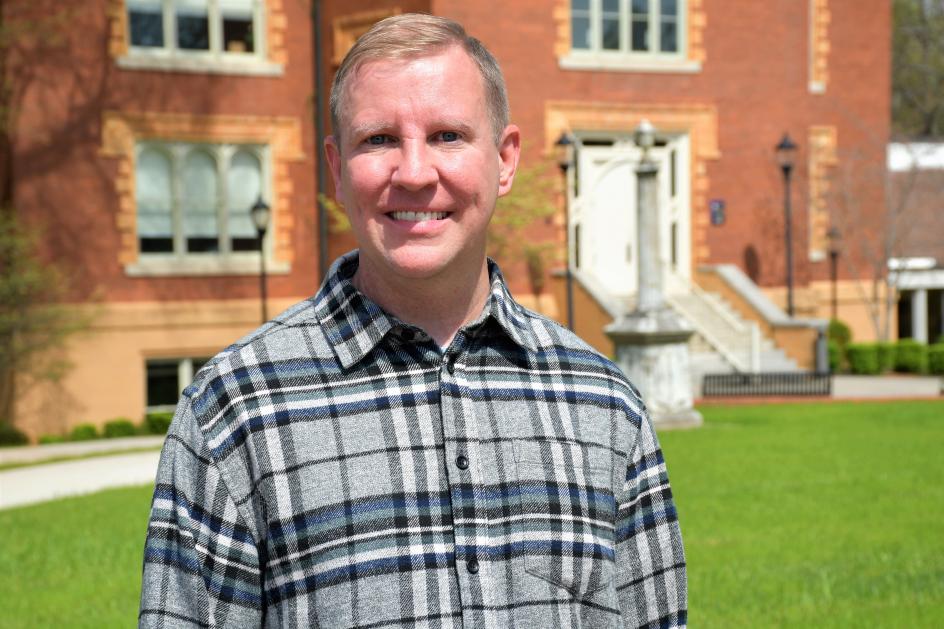April 7th, 2022
Limestone University Professor Dr. Jack Knipe To Present Reflective Research At International Conference

Limestone University Assistant Professor of English and Modern Languages Dr. Jack Knipe will be presenting his research on Critical Language Pedagogy in a Freshman Composition Course at the 66th Annual Conference of the Comparative and International Education Society.
The conference will take place in Minneapolis from April 18-22.
Among other research projects, Knipe has been conducting an autoethnography in area of critical language pedagogy. Critical language pedagogy involves teaching students to critically analyze and challenge widely held beliefs about language and dialects. The goal of this method of teaching is to promote democracy and equity.
Similar to self-study and narrative inquiry, autoethnography is a type of reflective research that investigates the role of the researcher in a larger cultural context. In this case, the context is his freshman composition course at a primarily black institution.
“The field of second language acquisition has taken a ‘social turn’ over the past couple decades,” Knipe explained. “This means that practitioners and researchers have shifted from formal methods of studying and teaching grammar and language structures and have become more interested in the sociocultural and contextual aspects of teaching and learning language. In my research, I discuss how the theories related to teaching English and English composition, the literature on best practices, and my lived experiences as a white professor play out while teaching freshman composition at a primarily black institution.”
Limestone will receive a $1.25 million grant over the next five years from the U.S. Department of Education's Predominantly Black Institutions (PBI) Program to fund its new “Real Men Lead” initiative that will enhance Limestone’s capacity to serve more low- and middle-income Black American students, particularly males. With the grant, Limestone will be able to expand those higher education opportunities by encouraging college preparation and student persistence. The PBI grant will also strengthen the financial ability of the institution to serve the academic needs of the students.
Including its On-campus and Online program students, the Limestone undergraduate student body resembles South Carolina high school seniors, so its overall demographics met the federal definitions to qualify for the grant.
Knipe continued, “As we continue in our efforts to serve black students, it is important to understand best practices. In my current area of teaching and research, I believe it is important to understand the educator’s role and effectiveness when teaching Standard Academic English to speakers of other varieties of English, including African American Vernacular English.”
The largest and oldest of 47 comparative and international education societies worldwide, the Comparative and International Education Society seeks to contribute to an understanding of education through encouragement and promotion of comparative education and related areas of inquiry and activity. This will be Knipe’s ninth year presenting at the conference. He has previously presented research related to language revitalization, second language acquisition, global citizenship education, peace education, education abroad, intercultural competence, and international students.
Knipe currently teaches in the Department of Humanities and Communication in the College of Liberal Arts and Sciences. He also serves as the International Student Support Coordinator for the Equity and Inclusion Office. He holds a PhD in International Education and Linguistics from George Mason University. He also holds a certificate in English Language Teaching to Adults from the University of Cambridge, a certificate in Intercultural Competency in Education from Háskóli Íslands (University of Iceland), a Master of Arts degree in Spanish from Middlebury College, a Master of Education degree in Integrated Curriculum and Instruction from Covenant College, and a Bachelor of Arts degree in Spanish from Bob Jones University.


